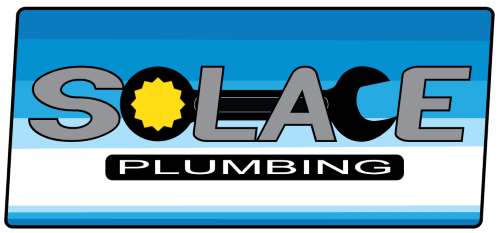Emergency Plumbing Tips Every Homeowner Should Know
One of the most critical pieces of information for any homeowner is the location of the main water shut-off valve.
Plumbing emergencies can strike at any moment, often catching homeowners off guard. Being prepared and knowing how to handle common plumbing problems can save time, money, and prevent extensive damage to a property. While complex problems require the expertise of a local plumber, understanding basic emergency plumbing techniques can be invaluable in mitigating potential disasters.
Identifying the Main Water Shut-Off Valve
One of the most critical pieces of information for any homeowner is the location of the main water shut-off valve. This valve regulates the water supply to the entire property and should be easily accessible. Typically, it can be found near the water meter, in the basement, or along an exterior wall. Familiarizing oneself with its location and operation is crucial for quickly stopping water flow during emergencies.
Dealing with Overflowing Toilets
An overflowing toilet is a common household nightmare. The immediate response should be to stop the water flow by closing the shut-off valve located near the base of the toilet. If the water continues to rise, removing the tank lid and manually lifting the float ball or cup can halt the water supply. For persistent issues, contacting a local plumber might be necessary.
Addressing Burst Pipes
Burst pipes can cause significant water damage if not addressed promptly. Upon discovering a burst pipe, the main water supply should be shut off immediately. Opening faucets throughout the house can relieve pressure and drain remaining water from the pipes. Applying a temporary patch using pipe repair tape or a pipe clamp can provide a short-term solution until professional help arrives.
Handling Sink and Bathtub Clogs
Clogs in sinks and bathtubs are frequent occurrences. A plunger can often resolve minor blockages. If plunging proves ineffective, a mix of baking soda and vinegar, followed by hot water, may clear the obstruction. Avoid utilizing chemical drain cleaners, as they can damage pipes. For stubborn clogs, a plumbing snake or the expertise of a local plumber may be required.
Tackling Leaky Faucets
A dripping faucet may seem like a minor issue, but it can waste a large amount of water over time. Most leaks are due to worn-out washers or O-rings. Replacing these parts can often resolve the problem. However, if the leak persists or the faucet is particularly old, consulting a professional plumber for a replacement might be the most cost-effective solution in the long run.
Preventing Frozen Pipes
In colder climates, frozen pipes pose a serious risk. Preventative measures include insulating pipes in unheated areas, keeping cabinet doors ajar to allow warm air circulation, and maintaining a consistent indoor temperature. If pipes do freeze, applying heat with a hairdryer or heating pad can help thaw them. Never use an open flame to thaw pipes, as this poses a significant fire hazard.
Maintaining Water Heaters
Water heaters are essential for comfortable living but can be a source of major issues if not properly maintained. Regular flushing of the tank can prevent sediment buildup and extend the appliance's lifespan. Strange noises, rusty water, or inconsistent heating are signs that professional inspection may be necessary. In case of a leaking water heater, shutting off the power supply and water inlet valve is crucial before seeking professional help.
Dealing with Sewer Line Backups
Sewer line backups are among the most serious plumbing emergencies. Signs of a backup include multiple drains clogging simultaneously or water backing up into tubs and showers when flushing toilets. Immediately cease water usage and contact a professional plumber. Attempting to clear main sewer line blockages without proper equipment and expertise can exacerbate the problem.
Importance of Regular Maintenance
Many plumbing emergencies can be prevented through regular maintenance. Scheduling annual inspections with a local plumber can identify potential problems before they escalate. Simple tasks like checking for leaks, clearing drain traps, and inspecting visible pipes for signs of corrosion or damage can go a long way in maintaining a healthy plumbing system.
Conclusion
While these tips can help homeowners navigate common plumbing emergencies, it's important to recognize when a situation requires professional intervention. Attempting detailed repairs without proper knowledge and tools can cause extensive issues and result in needing more costly fixes. Keeping the contact information of a reliable local plumber readily available is advisable for situations that exceed DIY capabilities.
By understanding these emergency plumbing tips, homeowners can respond effectively to common issues, potentially minimizing damage and saving money in the process. However, when in doubt, consulting with a professional plumber remains the safest and most reliable course of action for maintaining a home's plumbing system.
Solace Plumbing has 26 years of experience offering comprehensive plumbing solutions to Gilbert, AZ, homeowners. We specialize in gas line install and repair, sump pump installation and repair, leak detection and repair, sink installation and repair, and toilet installation and repair. Licensed and insured. 24/7 emergency plumbing services and flexible virtual consultations available. Call today!

